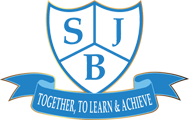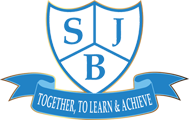Complaints Policy
Introductory Statement
As a school community, we are committed to upholding the ethos of The Church of Ireland, our school mission statement and our vision for the school in all our dealings with pupils, parents, one another and with the wider community in which our pupils live.
For that reason, we will try to prevent or minimise the need for complaints where this is possible. However, given that our community is made up of human beings and that mistakes can be made, we will approach these issues in a spirit of mutual respect and tolerance for the benefit of all.
This policy seeks to outline our approach to dealing with the following:
- Telephone complaints
- Complaints about the principal
- Complaints about teachers
- Complaints about Special Needs Assistants (SNAs)
- Complaints about pupils
- Complaints about parents
- Complaints about ancillary staff
- Complaints about Substitute teachers and peripatetic teachers
- Complaints about visitors to the school
Telephone complaints
If answered by personnel other than the principal, these will be dealt with by asking for the name of the complainant, his/her relationship to the school and what the call is in connection with, before passing these details on to the principal. No further details will be sought, nor will the complainant be engaged with over the phone, except by the principal teacher.
Complaints about the principal – Made by parents or pupils
Complaints coming from parents or pupils will be dealt with directly by the principal in the first instance, in order to resolve the issue informally and amicably if possible. If the complainant is unhappy or feels that the complaint has been dealt with unfairly, the complaint may be outlined in writing to the Chairperson of the Board of Management.
Complaints about teachers – Made by parents
The following procedure are in line with The Parental Complains Procedures document:
- It is expected that under normal circumstances, a parent who has a complaint about a teacher would approach the teacher at a mutually suitable time with a view to resolving the difficulty
- If the class teacher is by-passed by the parent, in favour of discussing the complaint with the principal, it will be suggested that the teacher should by approached first. However, if the principal feels that this would be unwise the complaint will be listened to without prejudice, notes taken and the parent will be asked to return when the teacher has been given an opportunity to present his/her views on the issues to the principal
- The principal, having listened to both sides, will try to bring the issue to a satisfactory conclusion
- Parents will be expected to make an appointment to see the class teacher if the matter needs more than a few minutes to resolve, in view of the fact that classes must have adequate supervision at all times and that corridors are unsuitable venues for discussion purposes
- Teachers are not expected to have to deal with an angry, aggressive, threatening, intimidating or otherwise abusive parent. The support of the principal, of if unavailable, deputy principal or colleague should be sought in these circumstances
- In the interest of teachers’ personal safety, parents presenting with a complaint under the influence of drugs or alcohol, should not be engaged with
- Teachers should retain a written record of any altercation which arises with a parent or guardian during which the teacher is threatened, shouted at or otherwise abused. A copy of this record should be given to the principal also
- If a complaint cannot be resolved with the class teacher, parents may bring the matter to the principal.
Complaints about teachers from pupils
- If a complaint about a teacher comes from a pupil to another teacher, the teacher to whom the complaint is made will refer to the principal and pupil’s teacher. This principal will then decide whether to deal with the matter her/himself or to refer it to the teacher. Parents/ guardians will be contacted. In either case, a written record kept by the principal.
- If the complaint about a teacher comes from a pupil to the principal, it will be listened to, notes taken and the pupil will be advised that the matter will be discussed with the teacher concerned with a view to resolving the issue. Parents/ guardians will be contacted.
Complaints about Special Needs Assistants (SNAs):
- Complaints coming from parents will be dealt with directly by the class teacher who will try to resolve the difficulty amicably
- Complaints about the SNA coming from the class teacher will be dealt with in the first instance by the teacher approaching the SNA with a view to resolving the issue. If the matter cannot be resolved satisfactorily, it will be brought to the principal.
Complaints about pupils
- Complaints made about pupils by other parents will be handled by the class teacher in the first instance and the principal if thought necessary, through the procedures set out in the Code of Behaviour and the Anti-Bullying Policy. Under no circumstances will a parent be allowed access to a child other than their own child in the school
- Complaints made about pupils by other pupils will be handled by the teacher to whom the complaint is made in the first instance and, with reference tour Code of Behaviour and Anti-Bullying Policy, by referring the matter to the principal if considered necessary.
Complaints about Parents
- The teacher will approach the parent, at a mutually suitable time with a view to resolving it. If the issue is still unresolved the teacher should follow the Complaints Procedure by referring the complaint to the Principal in the first instance. If the teacher is unhappy about the Principal’s response or recommendation, Stage 2 of the Complaints Procedure may be invoked.
Complaints about Ancillary Staff
- These will be referred to the principal who will approach the staff member directly in order to resolve the issue.
Complaints about substitute teachers and visiting teachers
- These will be referred to the principal who will approach the teacher in question directly with a view to investigating and resolving the issue.
Complaints about visitors to the school
- In the case of visitors to the school, (e.g. students on work experience, students on teaching practice, visiting members of other agencies) the complainant will refer the issue to the principal in the first instance
- If not resolved at this stage, the issue will be referred to the management body dealing with the worker with a view to resolving the issue.
Internal Conflict issues
In keeping with the mission and ethos of the school, staff members will seek to resolve internal conflict issues amicably between those concerned. However, if this process fails:
- The INTO staff representative will act as liaison between staff members or between staff and management in these instances
- The issue will be named and communication will be facilitated with all parties involved
- Everyone involved will be listened to and respected
- An early intervention in relation to conflict issues will be facilitated as far as possible
- All parties will work towards a resolution of the conflict and move on
- If necessary, an independent facilitator may be engaged to help resolve the conflict
- If the issue is not resolved, grievance procedures may be followed.
Complaints about a Department of Education and Skills Inspector:
In the case of complaints against a school inspector, the guidelines established by the INTO in the publication: ‘Procedures for Review of Inspections’ and the Department of Education and Science ‘Comments and Complaints’ guidelines will be followed.
As stated in the guidelines, any complaint will be issued and conveyed to the Inspectorate on the day in question or by the end of the following day.
Roles and Responsibilities
All stakeholders involved in the education of pupils will take responsibility for implementing the policy.
Ratified by The Board of Management January 2024

